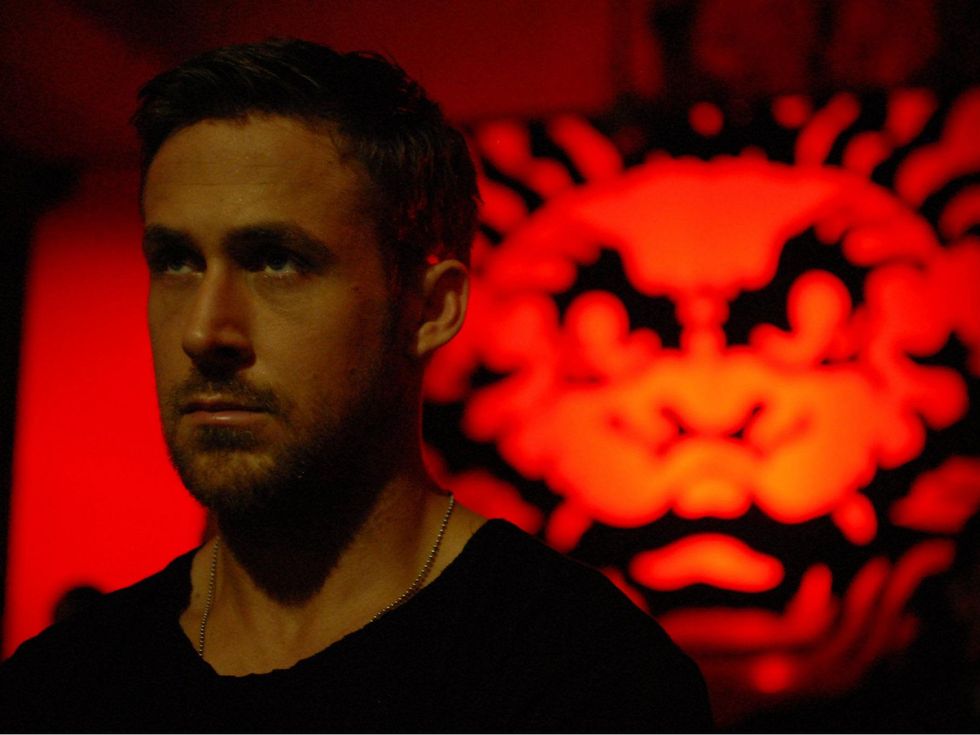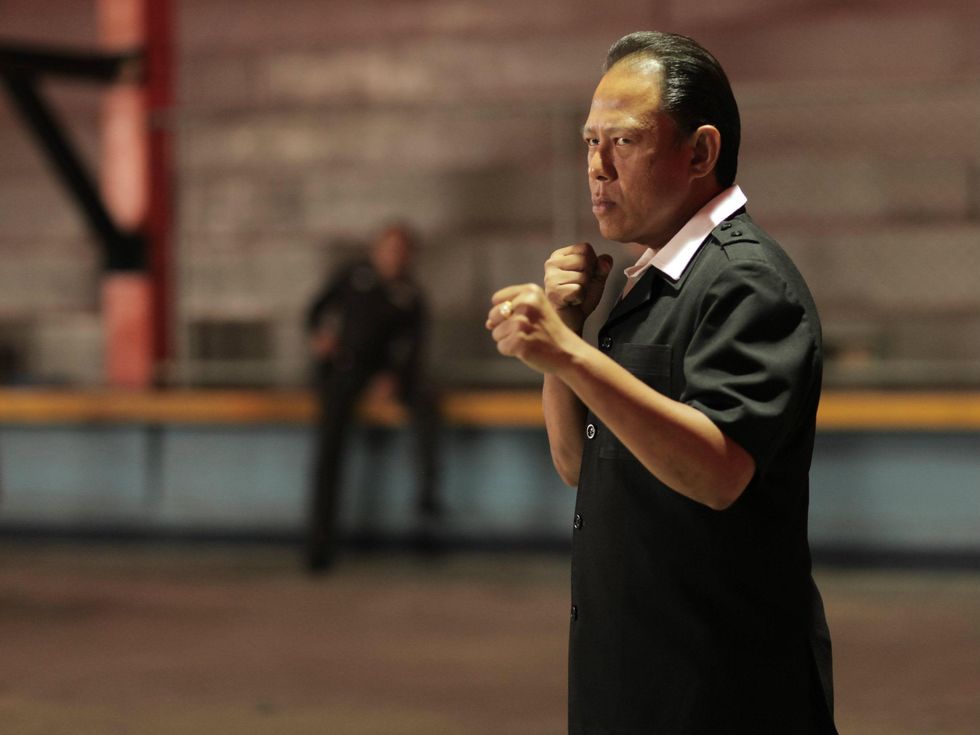Bad Boy of Cinema
Director Nicolas Winding Refn shatters expectations in Only God Forgives
Danish film director and screenwriter Nicolas Winding Refn was known in the art house film circuit for nearly a decade before American audiences gained a larger appreciation for his talents with the release of Drive in 2011.
The film struck a chord with a wider audience due to a winning combination of Refn’s vibrant cinematic visuals, Ryan Gosling’s brooding and violent lead performance, and composer Cliff Martinez’s memorable electronic-pop score.
Those three elements return once again for Refn’s latest film, Only God Forgives, featuring Gosling as the son of a Thailand-based crime family who is drawn from his Muay Thai boxing gym to become involved in a vicious cycle of revenge. If it sounds simply like a Drive sequel but in Bangkok, don't be fooled. Refn completely defies any expectations you might have with this film.
Refn and composer Cliff Martinez took the time to speak with CultureMap about their collaborations and their motivations behind what is already a divisive film.
CultureMap: Only God Forgives marks the second collaboration between you two. How did this partnership first begin?
Nicolas Winding Refn: Well I was doing [Drive] and we were quite late in the process and I had chosen these songs. [Producer] Adam Siegel was pulling his hair out because I was trying to find musical directions. We were able to get in contact with Cliff, because I had been a big admirer of Cliff’s music for many years, and I felt that his approach would elevate the movie.
And I think that Cliff came in for a screening, we chatted a little bit afterwards and you agreed. And you had, what, three weeks?
Cliff Martinez: I think five, which was still lightning fast.
Nicolas Winding Refn: We talked. I went to his house once in, I think, the first week and then I flew back to Copenhagen. So from then on we did everything by Skype, and then five weeks later we were mixing in New York.
Cliff Martinez: It’s interesting, because in that time span, for me, that’s pretty brief. There’re guys that do television shows in like a week, but for me five weeks is brief. Usually, I feel like I do better when I have more time, because I like to do things that are experimental — I like to take a few risks. That usually means some trial and error.
But with the score to Drive, it was almost all first impulse. First draft, first take, and that’s all there was time for. Interestingly it kind of worked in our favor it seemed. The first impulse seemed to be the right one, which it often is. There’s no time for self-doubt … because for me five weeks for 50 minutes of music is pretty rapid. But the first impulse approach seemed to work for Drive.
CultureMap: And when it came to Only God Forgives, did that approach change due to a different timeframe?
NWR: It opened up more because I would also show Cliff the script, because Drive became our first collaboration, which I considered very successful both artistically and commercially. And I considered film composing quite an essential part.
There are certain people that I continue using again and again. One of them is my editor Matt Newman and the other one has been Cliff now. Other people go through a wheel … I like to choose different people, but there’re certain key elements that I like that I think when it works don’t break it. Go with the flow.
So for Only God Forgives, I gave [Cliff] the script. We talked about the script. Then I went off for Thailand, and I talked [with Cliff] from Thailand … And also you were doing Thai songs, so while we were shooting you needed to compose the music.
CM: It was a longer timeframe for Only God Forgives. Usually, I don’t get brought in at the script stage before shooting. Nicolas had given me the script, which turned out to be ...
NWR: Very different from the movie.
CM: Very different from the film. In a way it was a bit of a curve ball. I saw the film and I was like “Hey, what happened?”
NWR: But that was like every time with all of my movies. I did a script to the final movie, and you’ve gone through a different universe. Again, it’s the creative process. I like the sense of constant evolution. It’s not done until it’s finished.
CultureMap: When you were scoring Only God Forgives, did you already have a mindset of doing something that would be radically different from Drive?
CM: That was part of the ground rules and one of the very first conversations before anything was shot. We talked about how we want to defy all expectations to be Only Drive Forgives. [Laughs.] And we really wanted to bypass that and nip that in the bud that it is not going to be like that.
So that was kind of a challenge, because we both have very strong, artistic personalities, and you try to shed those for each project, which is not always easy. So that was rule number one: thou shalt not sound like Drive. [Laughs.]
CultureMap: But you liked the challenge, I guess?
CM: We all like to stretch and do something different. Nicholas has been talking about doing a comedy, and I said that would be awesome. I’ve never done one either. And that would be so unexpected. That would be the ultimate curve ball for you to do that, and for me too, because I’ve always been cast as the prince of darkness and I would like to be the prince of light one day.
NWR: I mean there are people that are very, very successful at repeating a formula that they do. Some of the greatest films are made on that basis.
But at the same time I think that it’s vital — at least in my world — that everything is always different. The chief enemy of creativity is being safe ... So I’m a firm believer when people think you go left, you turn right, and when you turn right you make sure you reverse, and then you go forward at one point. And that’s the journey you take.
CultureMap: Since Only God Forgives first comes across as a direct spiritual successor to Drive, it seems that it will defy what audiences expect from the film.
NWR: There’s a great guilty pleasure in going against everyone’s expectations. If you want to be the Sex Pistols of cinema, you have to approach it like the Sex Pistols. And there is a great joy and pleasure ...
CM: In hearing the sound of a beer bottle smashing against your head. [Laughs.] At the end you have to be prepared for it. If you want to be the bad boy of cinema, people are going to throw some shit at you.
NWR: For sure! And then you know that they hate you for the same thing that the other ones love you [for], and that’s a very interesting emotion. Polarizing is great, because when you polarize that means that people have an opinion. So, of course, when you’re at Cannes and everyone is waiting and anticipating, and they go into a screening and half the audience goes, “What the fuck?” and the other half goes, “Magnificent!” you know that this is something that they are going to spend a lot of hours trying to figure out why they love it or why they hate it.
And then you have penetrated the mind.
---
Only God Forgives will enter theaters beginning July 19 and is part of the “Alamo Drafthouse Recommends” series of programming. Tickets are available for purchase.


